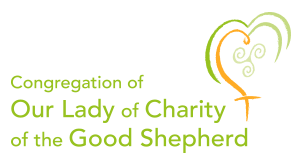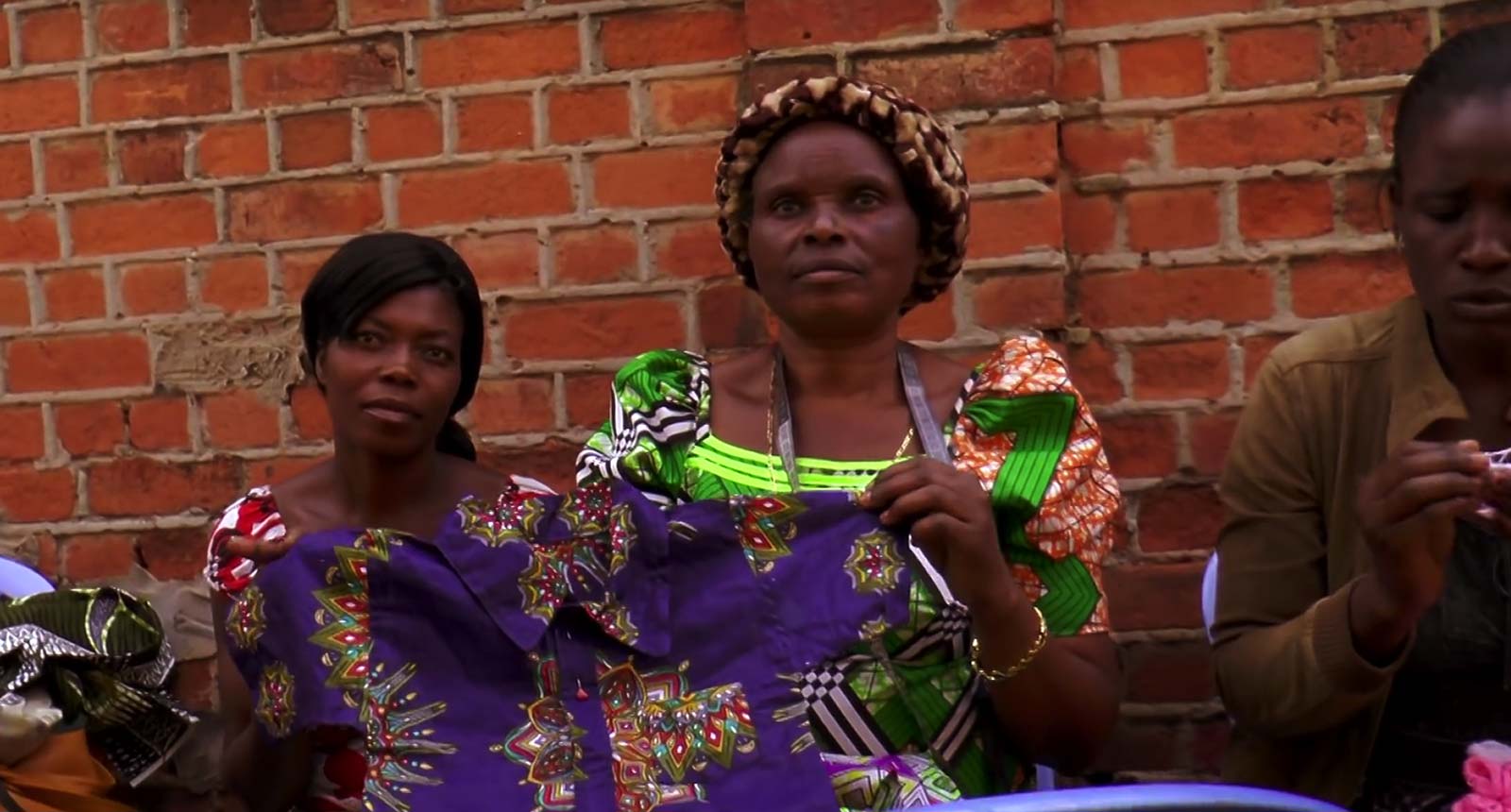The women of Domaine Marial are sewing a bright new garment. Many hands hold down the colourful fabric as one of the women irons a straight new seam.
They are part of a women’s economic empowerment project run by Good Shepherd at their training centre on the outskirts of Kolwezi, a town in the southern-most province of the Democratic Republic of Congo.
The women of Domaine Marial are sewing a bright new garment. Many hands hold down the colourful fabric as one of the women irons a straight new seam.
They are part of a women’s economic empowerment project run by Good Shepherd at their training centre on the outskirts of Kolwezi, a town in the southern-most province of the Democratic Republic of Congo.
These women used to work barefoot in the ponds and rivers contaminated with heavy metals that surround the artisanal mines of Kolwezi. Sifting through the toxic waters, they earnt less than $2 USD per day for the minerals collected and sold to become telecommunication cables or mobile phone components in the global market.
Kolwezi has been an important mining hub since the 1940s. Rich deposits of copper, cobalt, uranium, oxide ores and lime have attracted both commercial mining companies and waves of Congolese migrants hoping to earn their livings as artisanal miners.
Miners have come from all over the country to settle in Domaine Marial, resulting in a community that comprises many different ethnicities. In the past, this diversity has led to xenophobic tensions and community violence.
Poverty, hunger and competition for resources fuels the violence. Men in the community, ashamed at being unable to feed their families, turn to alcohol and drugs, further increasing rates of violence.
“For a long time, we’ve been the victims of violence in the community, even within our own homes, at the hands of our own husbands,” says one of the women at the centre.
Violence against women is endemic. 50% of women in the community have experienced sexual violence. 75% of women have experienced physical violence within their own homes.
Good Shepherd is working to reduce violence against women by supporting women’s economic empowerment through the Bon Pasteur Training Centre in Domaine Marial.
130 women are enrolled in the centre each year. They learn income-generating skills, including tailoring. They are taught to read and write. A nurse teaches health and wellness classes so that women better understand how to prevent disease.
“We teach them the things that will help them take care of themselves,” says Gertrude Tambwe, Project Manager of the training centre. “Because the moment you learn to take care of yourself, the risk of violence diminishes.”
Since the founding of the Good Shepherd program here, we’ve learnt to defend ourselves, even against our spouses. We are no longer victimized. We are independent. We know how to earn money for ourselves.
Women have been inspired to join the centre after seeing their neighbours’ lives turn around thanks to the skills and experiences they’ve gained.
A community-reporting system has been established for women who experience violence on the streets or in their homes.
The centre has also contributed significantly to community cohesion, explains Sister Jane Kendi: “People no-longer introduce themselves because of where in DRC they come from. They now introduce themselves as women of the Bon Pasteur training centre.”
The story of Good Shepherd in Kolwezi is documented in the film Maisha. Maisha means “life” and is the name of the community farm established by Good Shepherd as one of their other enterprise development projects in Kolwezi.
We encourage you to watch Maisha to learn more about the men and women who benefit from the work of the Good Shepherd Sisters and have embraced a new life away from the mines.


